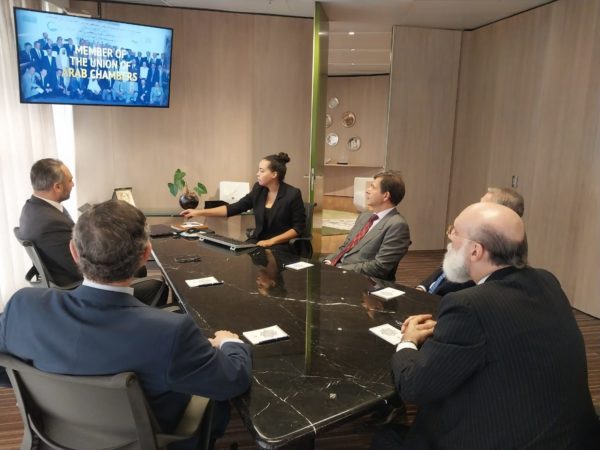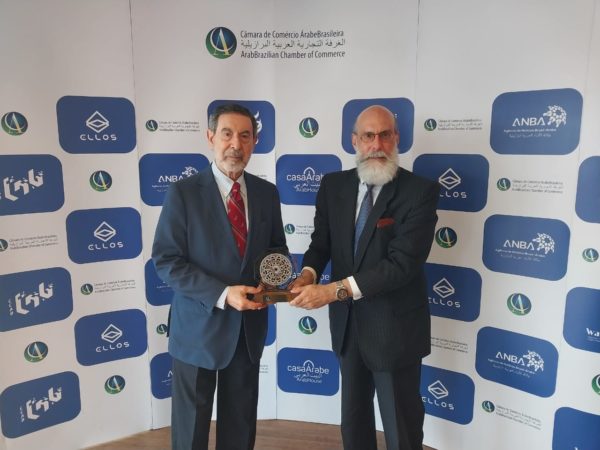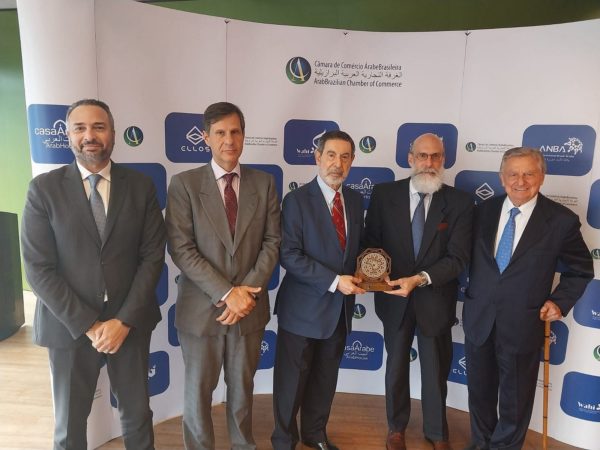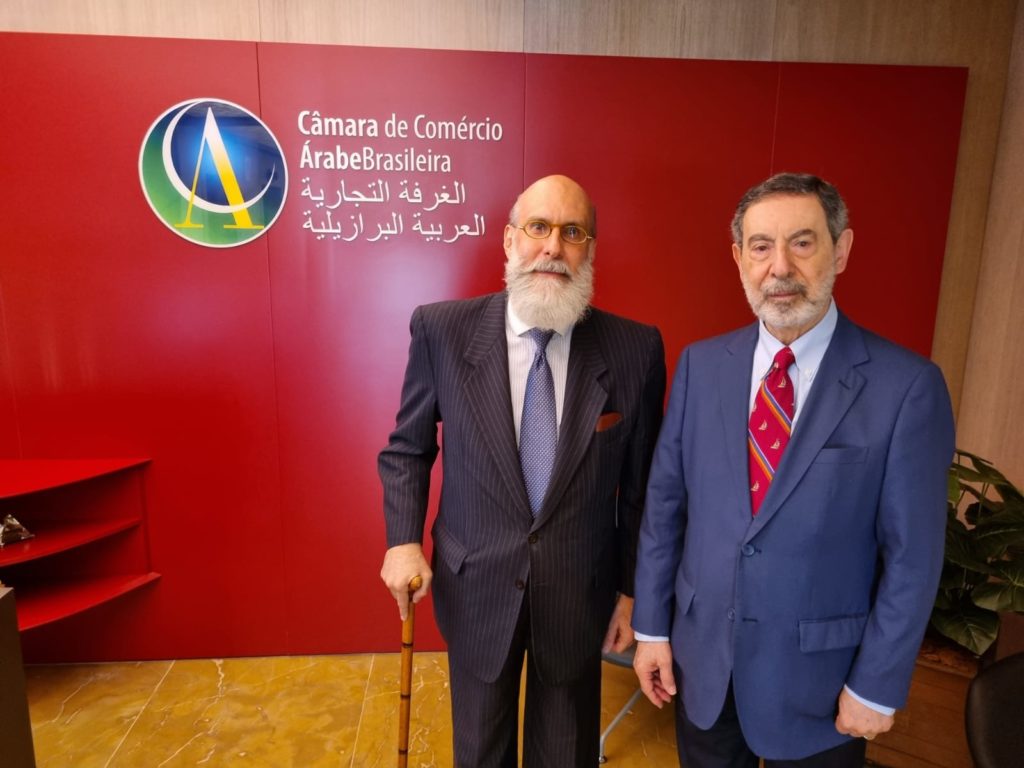São Paulo – Diplomat Márcio Fagundes do Nascimento will take over the post of ambassador from Brazil to Amman, Jordan, on June 6, knowing that he’ll have the mission to take care of the relations between Brazil and one of its major partners in the Middle East. In an interview with ANBA on Tuesday (21), Nascimento said the post in Amman is very sought-after within Brazil’s Ministry of Foreign Affairs, as Jordan is a respected and privileged partner of Brazil, as well as a reference for the Latin American country in Middle East affairs. Pictured above, Nascimento (L) alongside Arab Brazilian Chamber president Osmar Chohfi.

“Brazil listens to Jordan, Brazil seeks the opinion of Jordan on all matters regarding the Middle East,” Nascimento said. According to the ambassador, in the political landscape of Brazil’s Foreign Ministry, Africa and Middle East states are highly appreciated, and Amman is a landmark for Brazilian diplomacy. The ambassador said that he had a personal desire to go to Amman and that out of the countries he could chose, Jordan was his favorite.
Nascimento will step down from the position of head of the Department of Europe in the Ministry of Foreign Affairs of Brazil to take over the post. In Jordan, the diplomat said, he’ll work on three fronts, aiming to strengthen them and expand them. One of them is the parliamentary political, which includes bilateral meetings and visits from senior officials, as well as the dialogue between congresspeople, which will see the support of Brazil-Arab Countries Parliamentary Group.
Another front is defense and intelligence. “There’s a very dense cooperation already between the intelligence sectors of Jordan’s government and its counterpart in the Brazilian government. Jordan is a key hub precisely because it’s a geopolitical reference in all of Levant,” he said. Brazil and Jordan are part of the Aqaba Process, launched in the homonymous city to strengthen international cooperation against violent extremism and terrorism.

Another front the ambassador plans on working on to strengthen Brazil-Jordan relations is trade. The two countries saw a trade balance worth of approximately USD 580 million, of which USD 400 million were Brazilian exports and USD 181.4 million were Jordanian sales to Brazil. The Brazilians mainly exported poultry, maize and coffee. Jordan mainly supplied fertilizers (such as phosphate), clothing, and surgical devices.
In trade, the ambassador promises to look at the free trade agreement talks between Jordan and Mercosur, which were interrupted in 2014. “But as all joint talks, they must feature balanced advantages, not only for Brazil, but for all partners, which is not always easy to attain when these are talks involving a bloc like Mercosur,” he said. The ambassador mentioned the agreement between Mercosur and Egypt, Jordan’s neighboring country, as something to be replicated, given the Jordanian particularities. He also sees the possibility to broaden Brazil-Jordan partnership in science and technology, as well as tourism.

The ambassador believes a solution to Jordan’s ban on Brazilian beef is near. The ban was imposed due to the identification of an atypical mad cow case in North Brazil. “The reaction of any government has to be regarded very seriously and respectfully,” he told ANBA. Nascimento said Brazil has carried out an excellent clarification work with health authorities. “Eventually, and with due clarification, these situations will be resolved, without ever becoming a political issue,” he said.
Learning more about the situation of Brazil-Jordan trade motivated his visit on Tuesday to the Arab Brazilian Chamber of Commerce (ABCC), where he talked with ANBA. He was welcomed by the entity’s president Osmar Chohfi, CEO & secretary-general Tamer Mansour, Institutional Relations director Fernanda Baltazar, International Relations vice president Mohamad Orra Mourad and counselor Mohamad Abdouni, with whom he discussed Brazil-Jordan bilateral ties. Jordan was the first country to use Easy Trade, the system the ABCC has launched to digitize foreign trade.
Márcio Fagundes do Nascimento
With nearly 34-year-old diplomatic career, besides being head of the Department of Europe, which he led for three years, Nascimento held important positions in the Ministry of Foreign Affairs. He was the head of the Department of Mexico, Canada, Central America and the Caribbeans in the Brazil’s Foreign Ministry, served on the Brazilian mission to the United Nations, served on Brazil’s mission to the International Atomic Energy Agency (IAEA) and was minister-counselor in Brazil’s embassy in Montevideo, Uruguay, among other posts.
Nascimento says he feels fortunate for his new mission in Jordan. “Professionally speaking, I couldn’t go to a more challenging place. Personally speaking, this was a choice influenced by my interested in having. at this point of my career, an existential counterpoint, a cultural counterpoint, to being subjected to values, to references that haven’t been part of my daily life so far,” he said.
Translated by Guilherme Miranda




